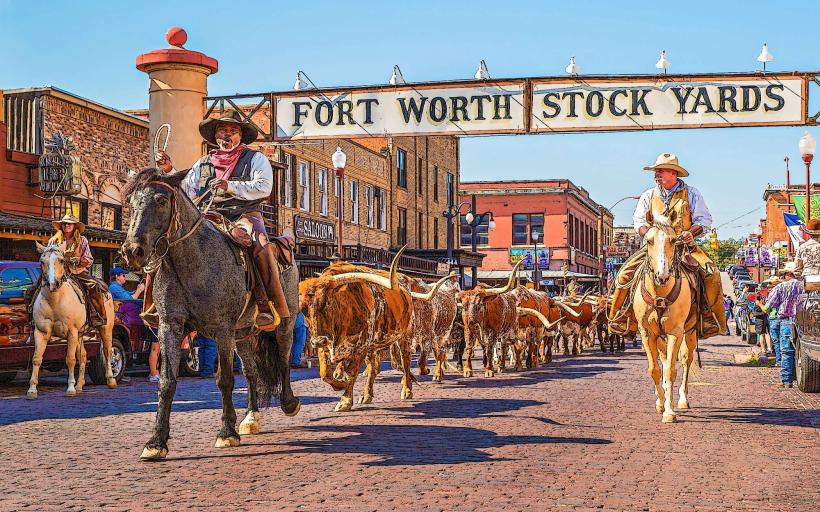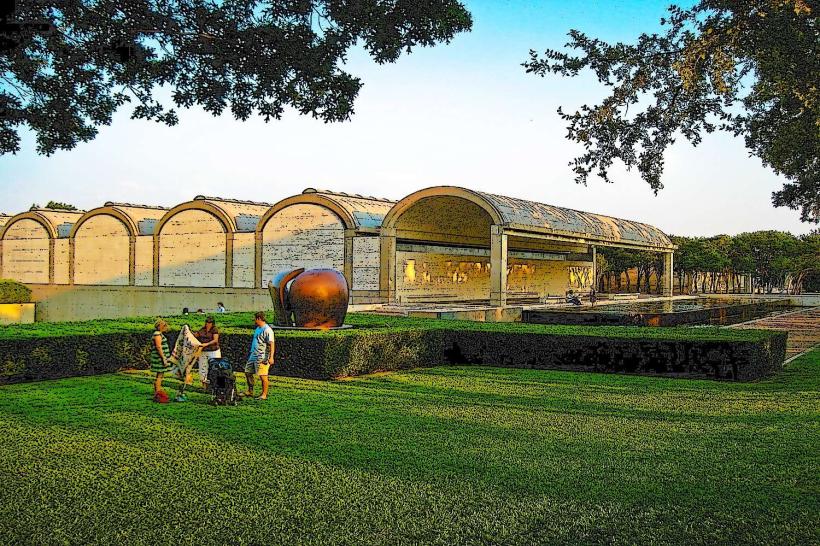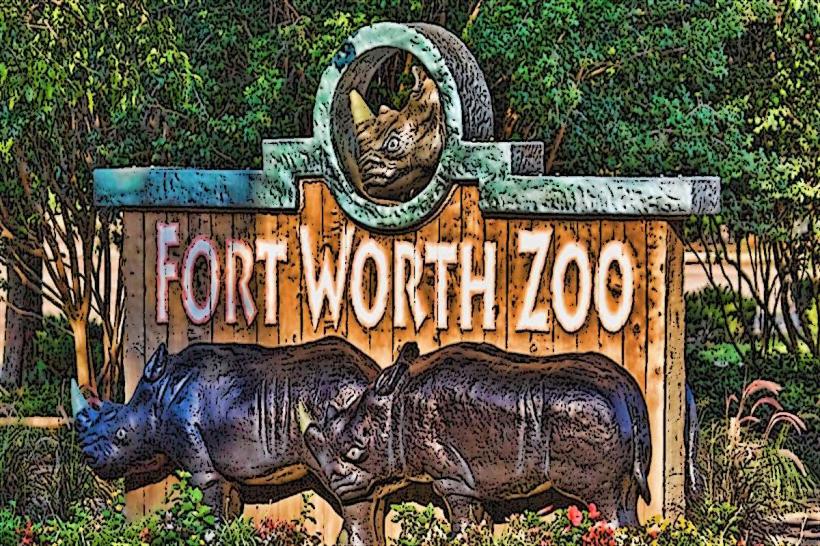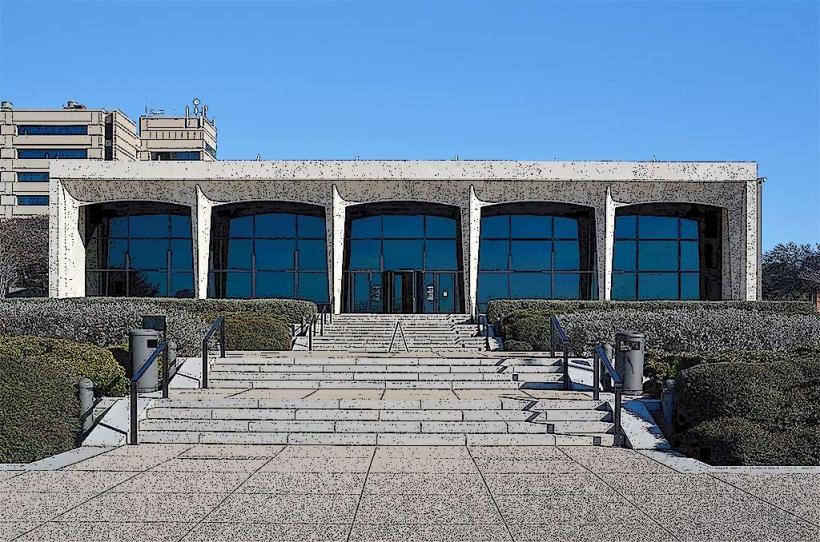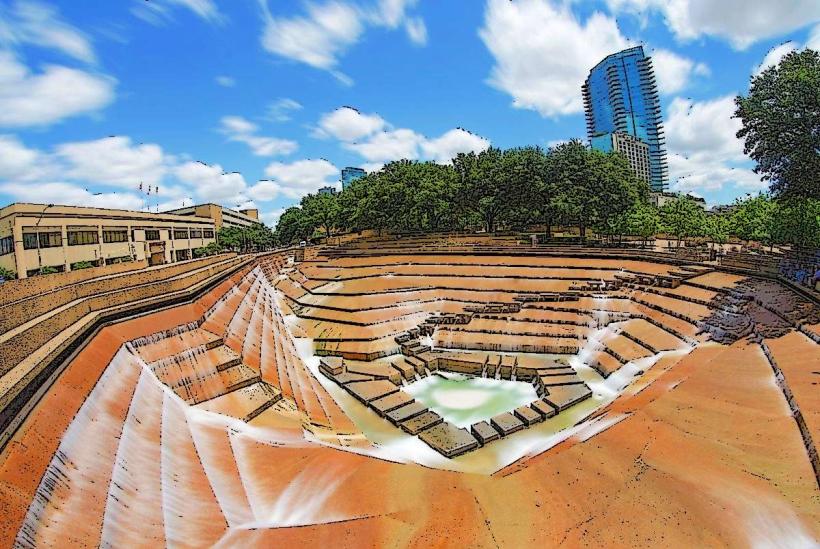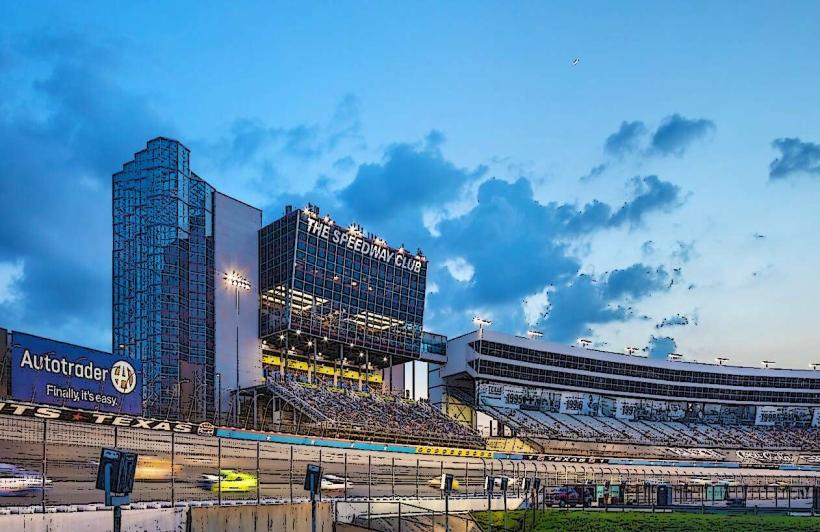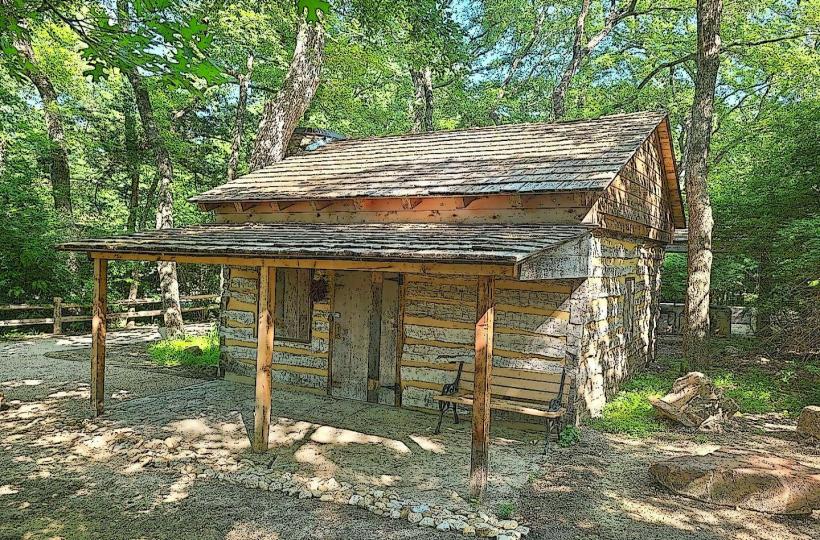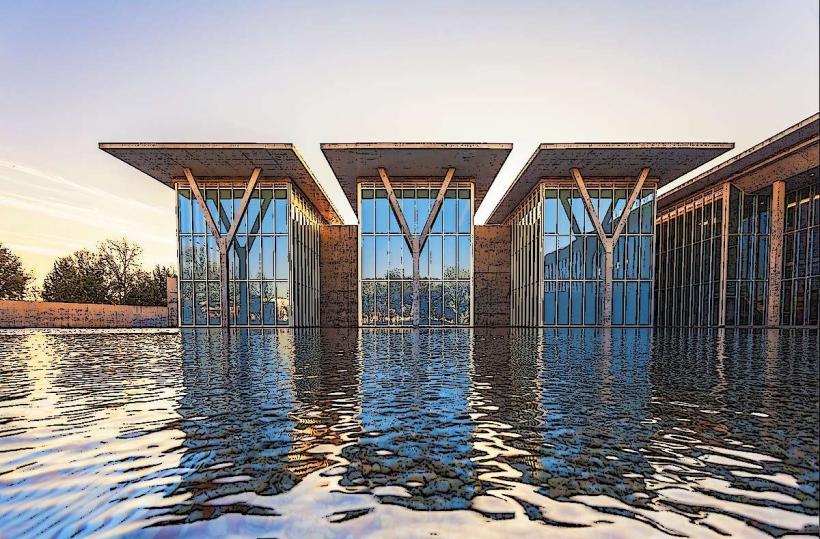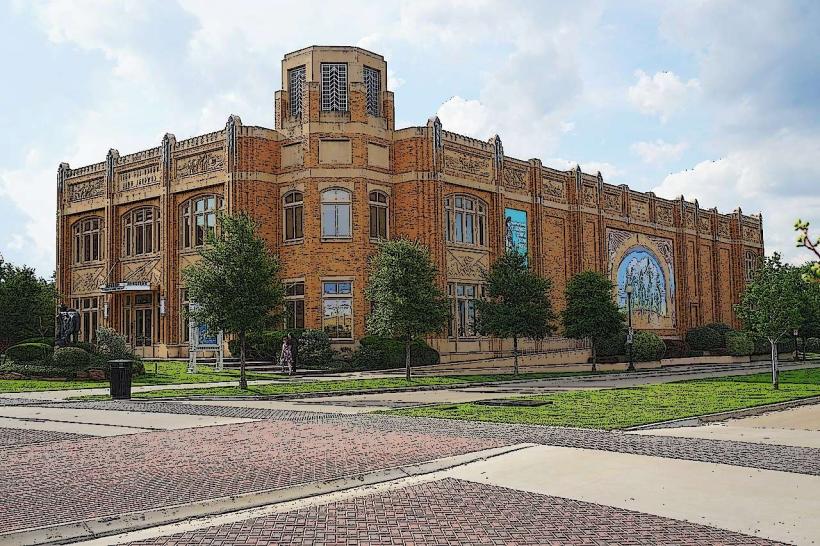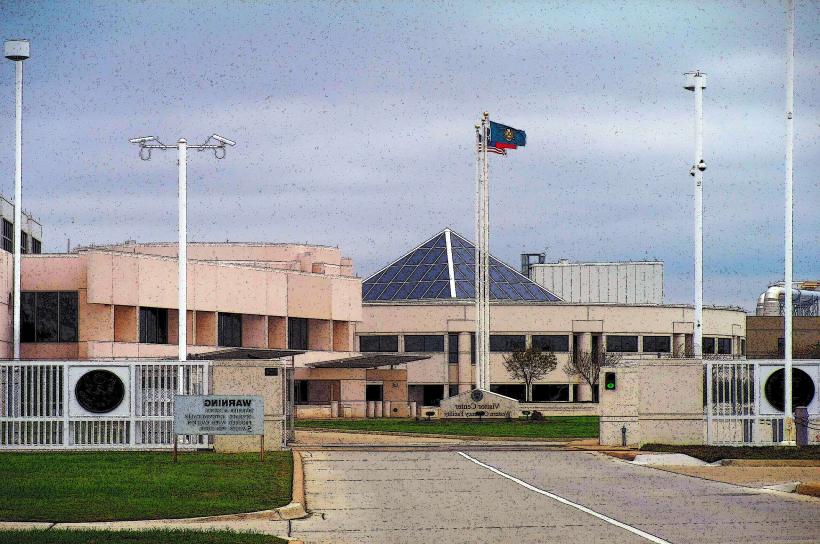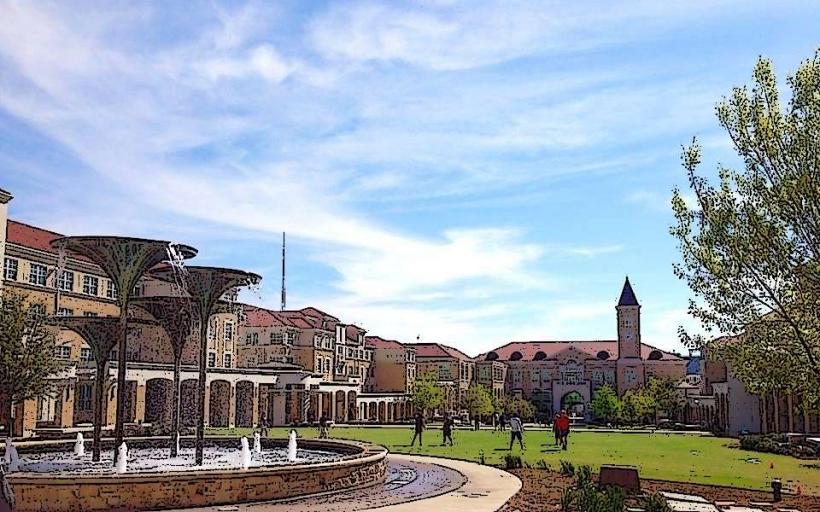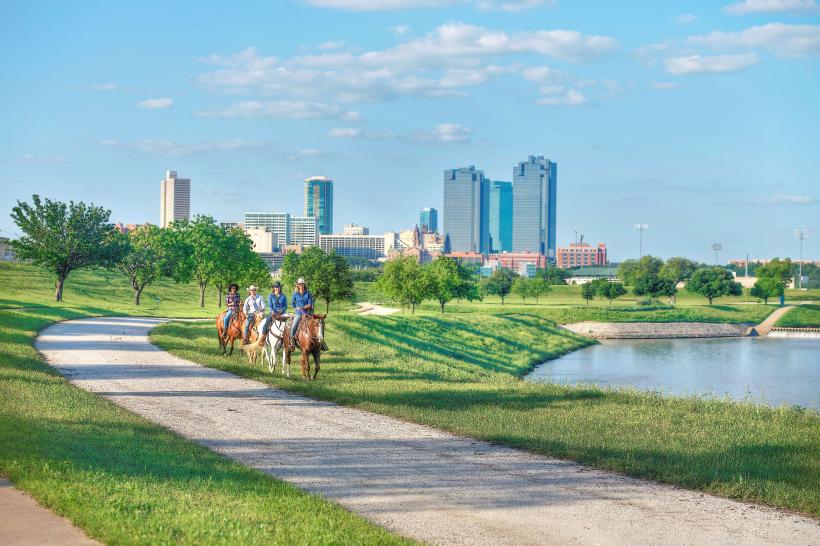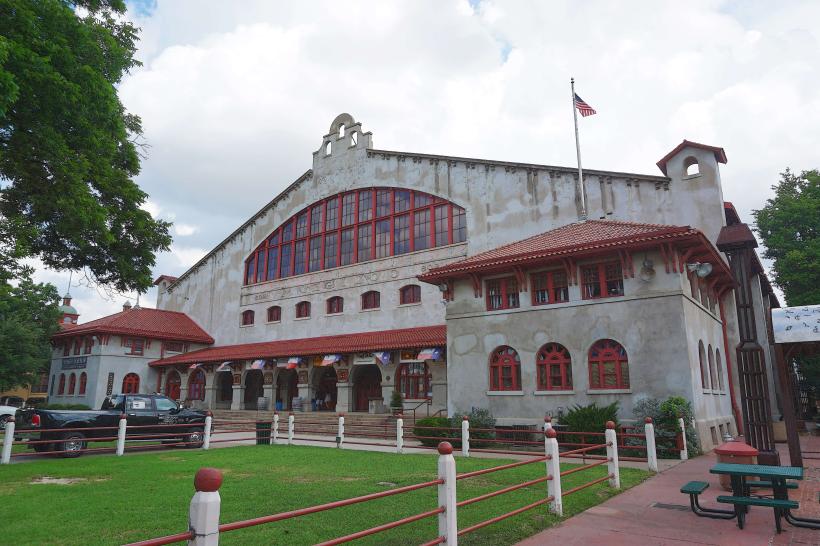Information
City: Fort WorthCountry: USA Texas
Continent: North America
Fort Worth, USA Texas, North America
Fort Worth, located in North Central Texas, is a major cultural and economic hub that combines a proud Western heritage with modern urban development. Often overshadowed by its larger neighbor Dallas, Fort Worth has its own distinct identity, shaped by its roots in the cattle industry, its military history, and its vibrant arts and cultural scene. Today, it is one of the fastest-growing large cities in the United States and plays a key role in the broader Dallas–Fort Worth metroplex (DFW).
Here is a detailed overview of Fort Worth:
1. History
Fort Worth has a rich and complex history that dates back to the mid-19th century.
Military Origins: Fort Worth was established in 1849 as an army outpost along the Trinity River, intended to protect settlers from Native American raids. It was named after General William Jenkins Worth, a hero of the Mexican–American War.
Cattle and the Chisholm Trail: Fort Worth became known as "Cowtown" due to its pivotal role in the cattle industry. It was a major stop along the Chisholm Trail, the route used to drive cattle from Texas to Kansas railheads. The arrival of the railroad in the late 1800s cemented its importance as a livestock and meatpacking center.
Economic Growth: In the early 20th century, the discovery of oil and the establishment of military installations helped diversify the economy. World War II brought increased defense activity, and Fort Worth became a key location for aircraft manufacturing, particularly with the opening of the Consolidated Aircraft Corporation (now part of Lockheed Martin).
Modern Expansion: The city has expanded rapidly in recent decades, both economically and demographically. It maintains a strong connection to its Western past while embracing innovation, education, and cultural development.
2. Economy
Fort Worth has a robust and diversified economy that includes aerospace, manufacturing, logistics, energy, education, and health care.
Aerospace and Defense: Fort Worth is a major center for aerospace and defense. Lockheed Martin Aeronautics, one of the largest employers in the city, manufactures military aircraft including the F-35 Lightning II. Bell Textron, known for its helicopters and tiltrotor aircraft, is also headquartered in the city.
Oil and Energy: Fort Worth has a long-standing connection to the energy industry, particularly oil and natural gas. The Barnett Shale, a large natural gas field, lies beneath the city and has driven economic activity since the early 2000s.
Transportation and Logistics: With its central location and access to major highways and railways, Fort Worth is a key transportation and logistics hub. The city is also home to the headquarters of BNSF Railway, one of the largest freight railroad networks in North America.
Finance and Services: Banking, insurance, and professional services are increasingly important to the local economy, especially as the city continues to grow.
Education and Health Care: Several universities and hospitals support strong education and health sectors. The University of North Texas Health Science Center and Texas Christian University (TCU) are significant local institutions.
3. Culture and Arts
Fort Worth is known for its rich cultural offerings, blending its Western roots with world-class museums and performing arts.
Western Heritage: The Fort Worth Stockyards National Historic District is one of the city’s most iconic areas, celebrating its cattle-driving past. Visitors can see daily cattle drives, rodeos, Western-themed shopping, and historic saloons.
Museums and Galleries: Fort Worth is home to some of the finest museums in Texas:
Kimbell Art Museum: Known for its collection of European masterpieces and its world-renowned architecture by Louis Kahn and Renzo Piano.
Modern Art Museum of Fort Worth: A leading institution for contemporary art with works by Jackson Pollock, Andy Warhol, and others.
Amon Carter Museum of American Art: Focuses on American art, especially works from the American West.
Performing Arts: The Bass Performance Hall, located in Sundance Square, is a premier venue for concerts, ballet, opera, and theater. It is home to the Fort Worth Symphony Orchestra, Fort Worth Opera, and Texas Ballet Theater.
Music and Nightlife: Fort Worth has a thriving music scene that includes country, jazz, blues, and indie. Popular areas include the Stockyards, West 7th Street, and Near Southside, each offering unique bars, clubs, and live music venues.
4. Landmarks and Attractions
Fort Worth features a wide variety of landmarks that reflect its history, culture, and natural beauty.
Fort Worth Stockyards: This historic district is a living museum of the Old West. It includes the Cowtown Coliseum, Texas Cowboy Hall of Fame, and numerous Western-themed shops and restaurants. The daily cattle drive is a signature attraction.
Sundance Square: A revitalized downtown area featuring shops, restaurants, entertainment venues, and a lively public square with events and performances. It’s a pedestrian-friendly hub for dining and nightlife.
Fort Worth Zoo: One of the top-rated zoos in the U.S., featuring over 7,000 animals and extensive habitats. It is a major family destination.
Fort Worth Botanic Garden: The oldest botanical garden in Texas, known for its beautiful landscapes, Japanese Garden, and education center.
Fort Worth Water Gardens: An architectural marvel near downtown, the Water Gardens are a tranquil retreat featuring cascading pools, fountains, and water walls.
Texas Motor Speedway: A major racing venue located north of Fort Worth, hosting NASCAR and IndyCar events.
5. Education
Fort Worth is home to several institutions of higher learning and a variety of public and private schools.
Texas Christian University (TCU): A private university known for its strong programs in business, science, and liberal arts. It also has a nationally recognized football team.
University of North Texas Health Science Center (UNTHSC): A graduate-level institution focused on medical research, health care, and public health.
Texas Wesleyan University: A smaller liberal arts university known for law, education, and nursing programs.
Public Education: The Fort Worth Independent School District (FWISD) serves thousands of students and includes magnet programs and early college high schools.
6. Weather
Fort Worth experiences a typical North Texas climate with hot summers, mild winters, and occasional severe weather.
Summers: Hot and dry, with average highs in the upper 90s°F (35–37°C) during July and August. Heatwaves are common.
Winters: Mild, with average highs in the 50s°F (10–15°C). Snow is rare but possible.
Spring and Fall: Transitional seasons are pleasant, though spring can bring thunderstorms, hail, and the occasional tornado.
7. Transportation
Fort Worth has a well-developed infrastructure, though like many Texas cities, it is largely car-dependent.
Highways: Major roadways include I-35W (north-south), I-20 (east-west), and I-30 connecting Fort Worth to Dallas.
Public Transit: Trinity Metro operates bus routes and the TEXRail commuter line connecting downtown Fort Worth to Dallas/Fort Worth International Airport.
Airports: The city is served by DFW International Airport (one of the busiest in the world) and Fort Worth Meacham International Airport, which handles general aviation.
Bike and Pedestrian Infrastructure: While still growing, Fort Worth has expanded its trail system along the Trinity River and is gradually improving its bicycle-friendly amenities.
8. Sports and Recreation
Though not as sports-heavy as Dallas, Fort Worth has a strong sports culture.
College Sports: TCU Horned Frogs compete in the NCAA Division I, especially notable in football and baseball.
Rodeo: Fort Worth is home to several annual rodeo events, including the Fort Worth Stock Show & Rodeo, one of the largest in the country.
Trinity Trails: Over 100 miles of trails for hiking, biking, and jogging along the Trinity River.
Golf and Outdoor Activities: Fort Worth has many parks and recreational areas, including golf courses and lakes for fishing and boating.
Conclusion
Fort Worth is a dynamic city that offers a unique blend of Texas tradition and modern sophistication. Its heritage as a cattle and military town is preserved through historic sites like the Stockyards, while its commitment to the arts, education, and innovation makes it a forward-looking city with much to offer residents and visitors alike. Whether you're drawn by cowboy culture, world-class museums, or economic opportunity, Fort Worth is a city where the past and future meet with purpose.

